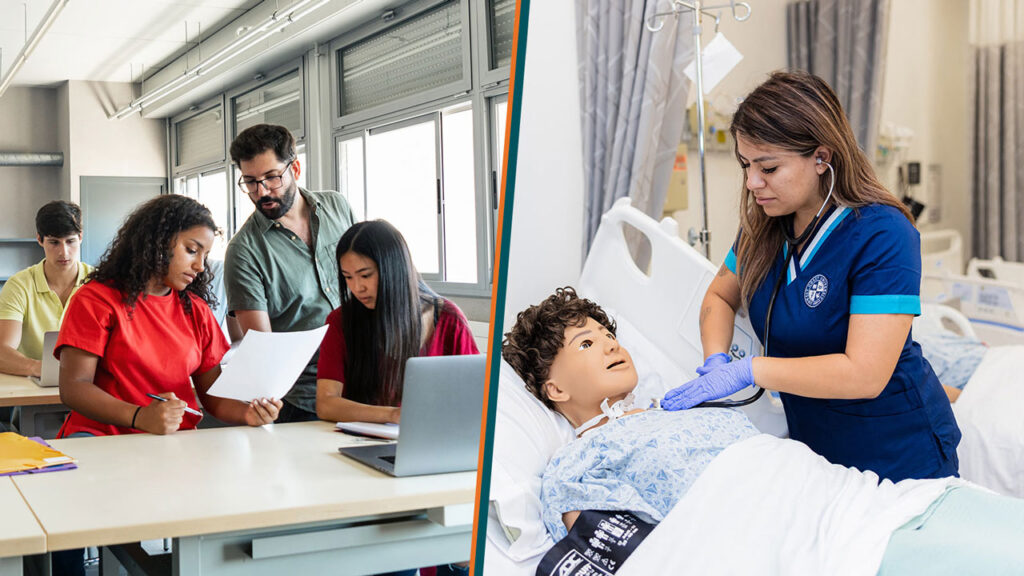A team of West Coast University-Dallas faculty recently conducted research to help decrease student medication administration errors during Simulation (SIM) Lab classes, and found great success.
“It’s so important that students learn how to not make medication errors before going into the clinical setting, and have the confidence to not make an error and perform well,”WCU nursing faculty and former SIM lab manager Brenda Uhrig, MSN, RN, CEN, CHSE, said.
Simple Fixes, Big Outcomes: Ways to Improve Medication Administration Practice in Simulation Utilizing Prep, Prebrief, Teams and Incident Reports
Brenda Uhrig, MSN-Ed, RN, CEN, CHSE; Ladonna Kampas, MSN, RN, CNE; LaToya Green, MSN, RN, Kathy O’Connor, MSN, RN; West Coast UniversityTo Err is Human and Err They Did! Do you need to impact students regarding the potentially lethal effects of medication errors? One health care simulation team identified these concerns in addition to a high medication error rate committed during simulation experiences. The team created three key interventions to address safe medication administration: 1) Utilizing real-life Medication Error Incident Reports; 2) Utilizing preparatory worksheets that focused upon medications and related nursing assessments; and 3) Conducting pre-brief sessions that emphasized the importance of teamwork, team responsibility and accountability for safe medication administration.
Uhrig led the four-person team of WCU researchers after watching students struggle with medication administration errors during SIM lab.
“We were able to decrease our students’ medication administration errors by greater than 20 percent, and we’ve implemented the research into our practice here at WCU,” Uhrig shares.
She and her fellow researchers implemented four steps during simulation classes with two cohorts: 1) prep, 2) pre-brief, 3) teams and 4) incident reports, or debrief. The debrief seemed to have the largest impact.
“What we found anecdotally is it increased delegation because the students had to talk to each other and work better as a team to do everything possible to not make an error,” she said.
Uhrig recently had the opportunity to present a poster for her team’s research at an Elsevier conference in Florida.
“I want students to remember there is a best practice,” Uhrig says. “I want my students to ask themselves if they are doing everything they can to help with their plan of care and to improve this patient’s outcome.”
Uhrig, an experienced simulation faculty member and longtime nurse, was also selected to participate in the National League of Nursing 2016 Leadership Development Program for Simulation Educators. This is a prestigious designation as only 20 are chosen each year for the program. The NLN specifically preferred Certified Healthcare Simulation Educators (CHSE), a license held by only 600 healthcare leaders worldwide, Uhrig being one of them.
WCU provides career guidance and assistance but cannot guarantee employment. The views and opinions expressed are those of the individuals and do not necessarily reflect the beliefs or position of the school or of any instructor or student.


